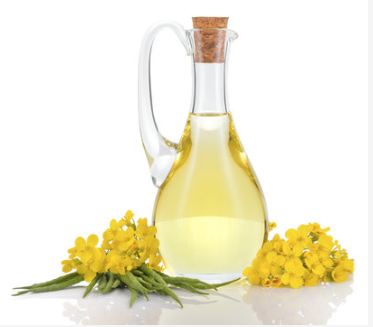With every food trend there are a hundreds products that come out labelled as ‘low calorie’, ‘gluten free’, dairy free’, ‘keto friendly’, ‘weight watchers’, ‘low fat’ or ‘reduced salt’. The most recent, and highly commendable for the planet and ethical treatments of animals, is veganism.
However, sadly this has resulted in many food companies striving to produce foods that look like small like and taste like meat. To make the transition easier. These are quite wrongly advertised as being healthy and good for you as they don’t contain animal products.
This could not be further from the truth.
In this article I will briefly explain why lots of foods labelled as ‘healthy’ and ‘good for you’ are in fact best to be avoided at all costs. There are some that are not going to do you too much harm if used sparingly but regular ingestion of fake ‘non-meat’ meats will lead to problems, likely IBS Symptoms, possibly worse in the long run.
Quorn
The meat substitute ingredient in Quorn is fungus. This naturally occurring fungus is called Fusarium venenatum and is processed into a protein called mycoprotein.
To create mycoprotein, manufacturers ferment fungi spores along with glucose and other nutrients. If this alone doesn’t put you off a number of recent studies indicate that the fungus used to make mycoprotein is a potential allergen, and may cause dangerous reactions if consumed.
Also, some mycoprotein products may contain egg or milk to improve the texture. But this should clearly be marked on the label.
Of course the FSA and FDA approved this product as being safe. However, in my opinion if you want to eat something that looks, smells and tastes like meat then just eat meat.
True vegans eat vegetables and can exist perfectly well without meat or fake meat. Providing B12 supplementation is included in the diet there will be no protein loss or detriment to health in any way.
Soya Products (Soy Milk, Tofu, Tempeh)
Soy contains Lectins which mess with your leptin sensitivity (hunger and energy signals), making your brain think it’s hungry even when your body has more than enough calories.
Levels of phytates in soy are also very high. Phytates bind to the minerals zinc, calcium, iron and magnesium and make them unavailable for you.
Soy contains high levels of goitrogens which inhibit the thyroid’s ability to utilise iodine, which could lead to hypothyroid problems.
Thyroid problems are so prevalent today, especially for women, that it’s now seems completely normal to have thyroid problems. When you have an underperforming thyroid gland (hypothyroidism), your whole metabolism slows down. You feel cold all the time, you have low energy and you catch just about any virus because of a weakened immune system.
As if lectins and phytates where not enough, soy also has protease inhibitors, also called trypsin inhibitors. These toxins block the action of enzymes that have the responsibility of digesting certain proteins. Not good at all for IBS sufferers.
Soy contains plant oestrogen’s which raise your oestrogen levels and lowers your testosterone levels. Having abnormally high levels of estrogen could disrupt your periods, fertility and put you at risk for breast cancer. Going off Soy yet?
*Soy sauce is fermented and doesn’t affect the health in quite the same way, so a little soy sauce now and then would not necessarily have the same effect as long term soy product consumption on the health. It is high in sodium however so don’t go wild with it or use it all the time.
Olive Oil Spread
This is one of my biggest bug bears at the moment. Firstly let’s talk about fats.
Saturated Fat – Solid at room temperature. Products like Butter, Lard, Animal Fat on meat (whilst uncooked) are saturated fats.
Unsaturated Fat – Liquid at room temperature. Think oils like Olive oil, sesame seed oil, avocado oil, coconut oil (in warmer climates like Asia and some parts of the USA).
When these two fats are combined they form a chain that is indigestible. As separate fats they are both easily digestible and are neither acidic or alkaline, being easily absorbed into the body and helping with joint mobility, brain cell function, smooth bowel movements and a zillion other essential processes in the body.
- Saturated fats contain hydrogen and carbon atoms that are single bonded.
- Unsaturated fats contain hydrogen and carbon atoms that are double bonded.
The combination of these create an unnatural fatty acid chain that I would recommend avoiding. There has been lots of controversy over the years about margarine products (a mix of butter ad oil) to be one chemical strand away from plastic.
Either way, you would normally cook in oil OR butter, not both.
My advice? Eat real butter in a block, aim for unpasteurised and salt free for the best product. If you are vegan use a pure nut butter, avocado or olive oil as a spread.
Rapeseed Oil (canola oil)
This is cleverly marketed as being really healthy and where I live in Norfolk, UK we are surrounded by rapeseed fields which are now utilising this unhelpful oil in just about everything we eat. Trying to avoid rapeseed oil is fast becoming almost as difficult to avoid as Palm Oil (I try and avoid this for ethical reasons and the destruction of the rainforests).
The problem with the rape plant is that when it releases its seeds naturally, it does so over a period of a few days to better dispurse them around. BUT this is no good for farmers of the rape plant. They want to click and collect the seeds all in one go, of course. This makes perfect sense to the farmer. Not all of these plastics are able to be safely removed from the seeds when they are pressed to make the oil.
Also, the oil is usually genetically modified and treated with a chemical called Hexane which lowers the nutritional quality of the oil in the first place.
My advice? Stick to Olive Oil, Avocado Oil, Sesame Oils and avoid sunflower oil, rapeseed oil and palm oil where possible. For good gut health, And IBS free life and good karma.
Stevia (and other healthy ‘sugars’)
Personally, I don’t like the taste of Stevia and can taste it a mile away, craggy, oversewed and manufactured it reminds me very much of aspartame however is very different as it is derived from an actual leaf, rather than a chemical process. (Read Sugars for more info).
Stevia has been used for some time as a natural alternative to sugar. It contains no calories or carbs and in its natural leave form where it goes in Asia it has more beneficial properties than in its powdered form added to lots of ‘healthy’ products allowing us to think this is a better option for our health. Of course this may be slightly better for you than refined bleached white sugar…. But it is still a sugar.
There are many articles online about how safe stevia is for you and how it won’t affect your gut bacteria, it won’t promote candida overgrowth and how it is a wonderful product to include in your diet.
But let’s remember it is a powder that is made from a leaf. So is cocaine. Is that safe?
My advice? If you want something sweet – eat some fruit. You will benefit from the whole food nutrients and your body will know how to process this easily.
Energy Drinks
These again really do bug me, especially when I see normally fit and healthy people at the gym throwing these things down their gullets with gay abandon. These drinks are toxic as hell, not only in terms of sugars but also in the caffeine they contain.
And usually a great addition of aspartame to be calorie free!
This combination may provide a short term high, but what goes up, must come down and it really messes with your whole system. Encouraging diabetes with regular use and also generally messaging with your metabolism.
Not only that, a well known brand actually uses stomach bile from caged bears living in absolute misery with pipes coming out of their bodies attached to the gallbladders…. Literally not enough puke emojis could cover my gross out at this. Vodka redbull anyone?
Being IBS Free
For an IBS free life, my advice would be to consume an 80% whole food diet with only 20% processed foods. And by processed I mean foods that have been through any kind of process. This includes almost anything in a packet. Oat cakes, rice cakes, tortillas, crisps, chocolate… the list goes on.
This will ensure that you are feeding your gut, body and brain with everything you need and minimal foods that can harm or irritate the gut, helping you to reduce your IBS Symptoms and life an IBS free life.
For more information on how to be IBS free just click here

